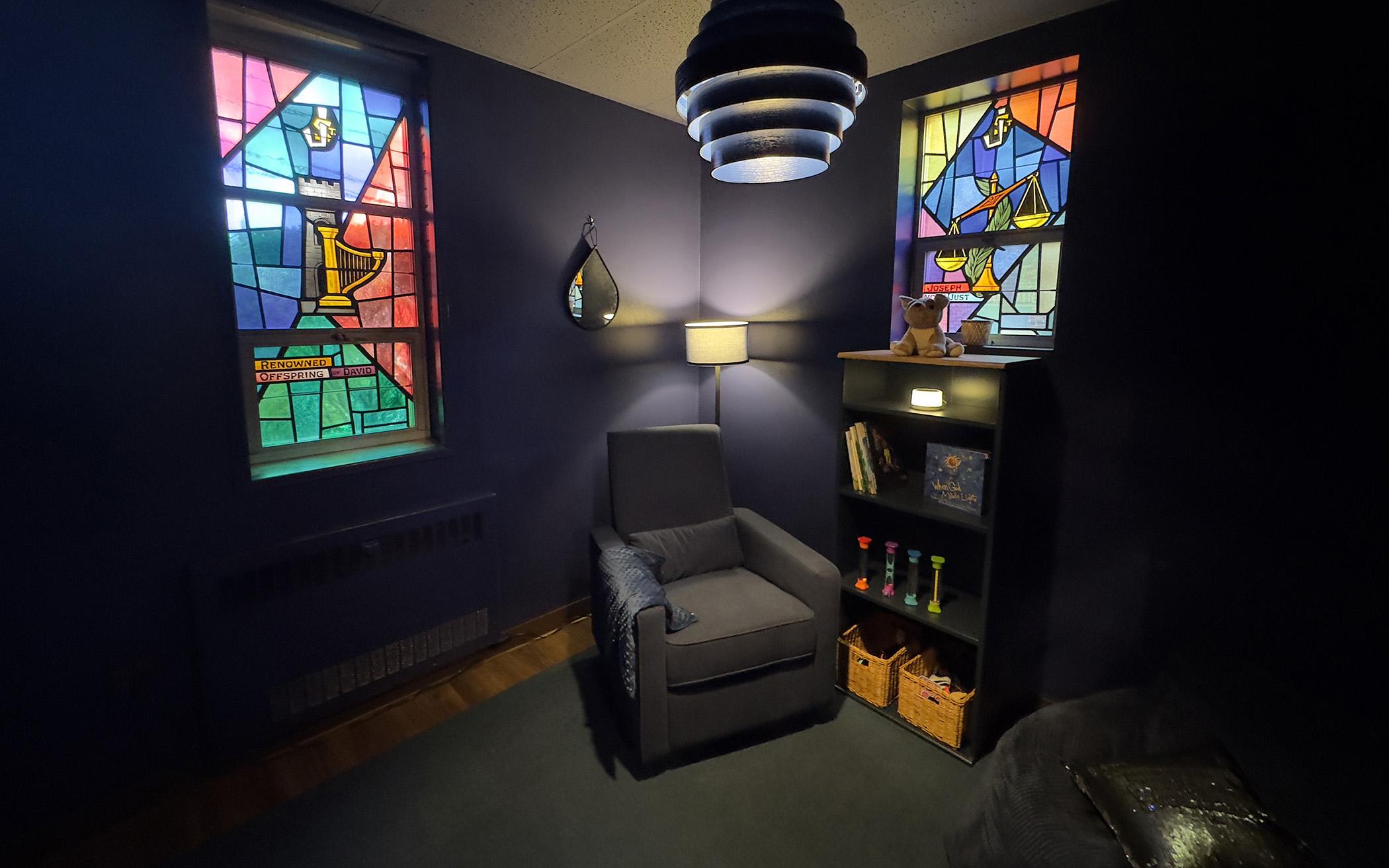The Banner has a subscription to republish articles from Religion News Service. This story by Kathryn Post, was published July 17, 2025 on religionnews.com. It has been edited for length. Banner style, and relevance to the Christian Reformed Church.
From organ blasts and incense to forced hugs and handshakes, for folks who struggle to process sensory input, houses of worship can quickly feel anything but holy.
That was the case for Lark Losardo’s son Percy, who in 2017 began attending Catholic Mass with his family at age 7. Percy, who is autistic, was often overwhelmed by the Brooklyn church’s open space, noise, and crowds. At first, when he needed to move around or stim (engage in repetitive actions to self-regulate), he’d leave the service with a parent. Eventually, in part because of the barriers to attending as a family, they stopped coming altogether.
Then, in 2020, the Losardos moved to Maplewood, N.J. After watching online services at a nearby Catholic parish called St. Joseph’s during the pandemic, Lark Losardo learned in 2024 that the parish was opening a sensory room equipped with regulation tools, including a weighted blanket, touch pillow, ear defenders and sound machine. Thanks to that room, today Percy is back in the pews, using the room to regroup whenever needed.
“It speaks volumes,” Lark Losardo told Religion News Service. “Not everyone needs this space, but just having it there sends a very clear message” of inclusion.
Across the U.S., families like Percy’s who once thought corporate worship was off-limits are returning to faith communities thanks to a small but growing number of sensory rooms in religious settings. Making use of underutilized classrooms, storage spaces, and former nurseries, these rooms vary in size and appearance, but are all designed to offer a calm, predictable environment that can help with nervous system regulation. Disability advocates say the rooms signal that a community prioritizes the needs of neurodivergent and disabled members.
Related: Disability Advocates Support Belonging, Participation in Their Churches (Feb. 14, 2025); Campers with Autism Find Quiet Corner at Ontario Church (July 29, 2016)
At St. Joseph’s, Rev. Jim Worth said the new sensory room, which opened in December, is a natural extension of the parish’s faith values. To him, the room is evidence that inclusion—a principle Worth linked to Catholic social teaching—isn’t just given lip service.
“When you put intentionality behind something, it makes a world of difference,” said Worth.
On a 60-degree (15.5° C) day in late March, the church, located on a quiet residential street, had a front stoop featuring three signs: one quoting Martin Luther King Jr., another quoting Pope Francis, and a third welcoming anyone in the community to visit the Still Waters Sensory Room.
Named after the biblical Psalm 23 passage—“he leads me beside still waters”—the sensory room was converted from an unused confessional. It was designed by Together We Bloom, a Maplewood-based nonprofit that helps make events and spaces more accessible. The room's dark indigo walls match the comfortable chair glider and beanbag, each contributing to the soothing atmosphere. The total cost of the room was under $2,000 and was largely paid for by church funds, plus some donations.
“This sensory room has really changed everything for us,” said Pavitra Makam, a St. Joseph’s parishioner and mother of two neurodivergent kids. “Being able to worship together has been the biggest thing for our family.”
Jay Perkins, who has been in the sensory room business since 2009, said it's often parents in need of a safe, supportive space for their kids who are spearheading the movement to build sensory rooms. When his daughter began exhibiting signs of aggression at age 4, places like libraries (too quiet), playgrounds (too loud) and trampoline parks (too crowded) were inaccessible. That applied to his Episcopal church, too.
“There are so few places where special-needs kids with sensory integration disorders (to) enjoy,” said Perkins.
The lack of accessible spaces for his family inspired Perkins to begin building the kinds of rooms his daughter would thrive in. In 2018 he officially launched his company, The Sensory Room, which builds high-end, durable sensory rooms from start to finish and trains people on how to use them.
“It’s catching on,” said Perkins, whose company built roughly a dozen rooms in 2022 and 80 in 2023. Perkin’s company specializes in schools and has also built rooms for a Broadway theater and an airport, and three in evangelical churches.
c. 2025 Religion News Service
About the Author
Religion News Service is an independent, nonprofit and award-winning source of global news on religion, spirituality, culture and ethics.

